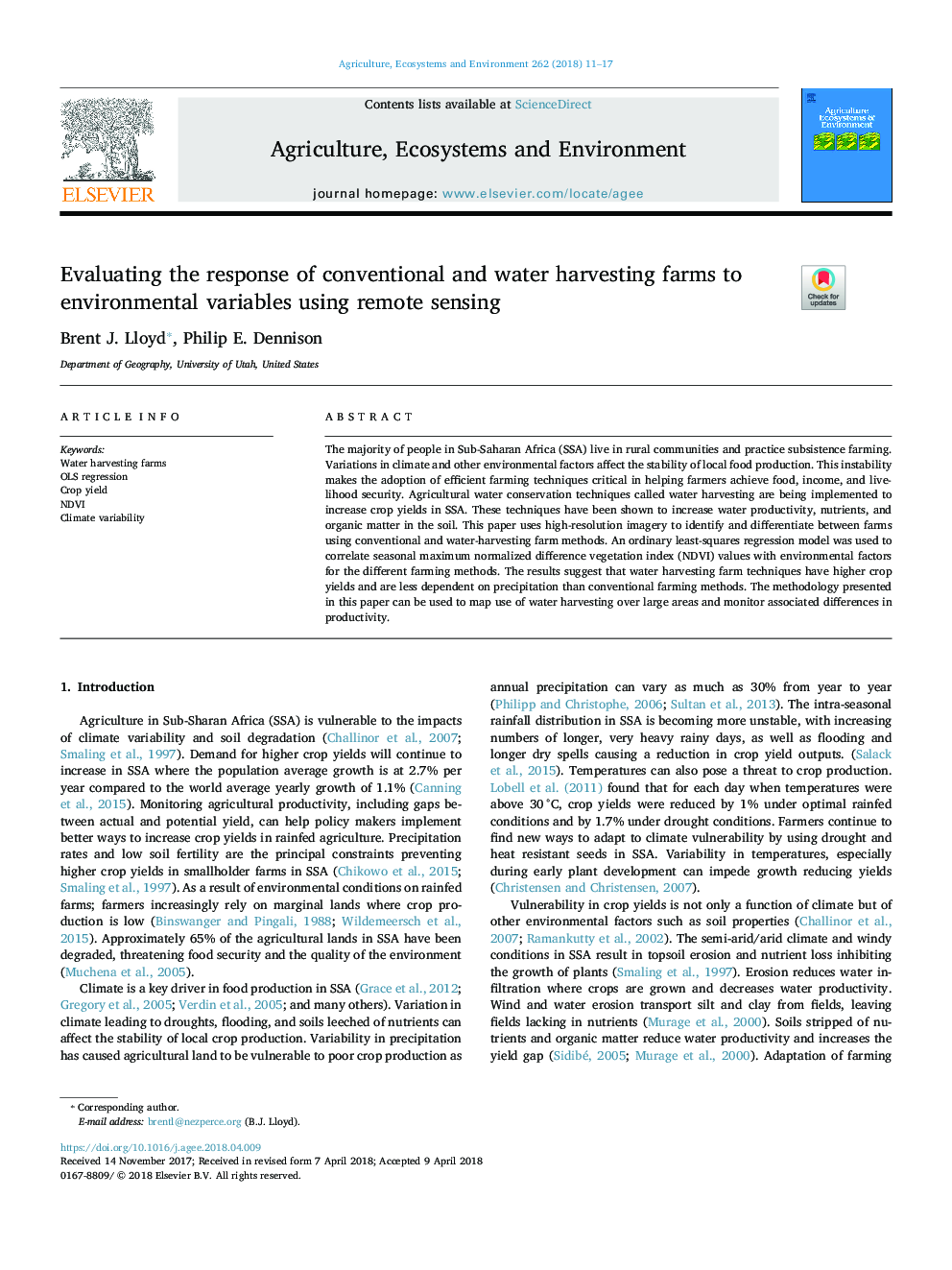| Article ID | Journal | Published Year | Pages | File Type |
|---|---|---|---|---|
| 8487042 | Agriculture, Ecosystems & Environment | 2018 | 7 Pages |
Abstract
The majority of people in Sub-Saharan Africa (SSA) live in rural communities and practice subsistence farming. Variations in climate and other environmental factors affect the stability of local food production. This instability makes the adoption of efficient farming techniques critical in helping farmers achieve food, income, and livelihood security. Agricultural water conservation techniques called water harvesting are being implemented to increase crop yields in SSA. These techniques have been shown to increase water productivity, nutrients, and organic matter in the soil. This paper uses high-resolution imagery to identify and differentiate between farms using conventional and water-harvesting farm methods. An ordinary least-squares regression model was used to correlate seasonal maximum normalized difference vegetation index (NDVI) values with environmental factors for the different farming methods. The results suggest that water harvesting farm techniques have higher crop yields and are less dependent on precipitation than conventional farming methods. The methodology presented in this paper can be used to map use of water harvesting over large areas and monitor associated differences in productivity.
Keywords
Related Topics
Life Sciences
Agricultural and Biological Sciences
Agronomy and Crop Science
Authors
Brent J. Lloyd, Philip E. Dennison,
